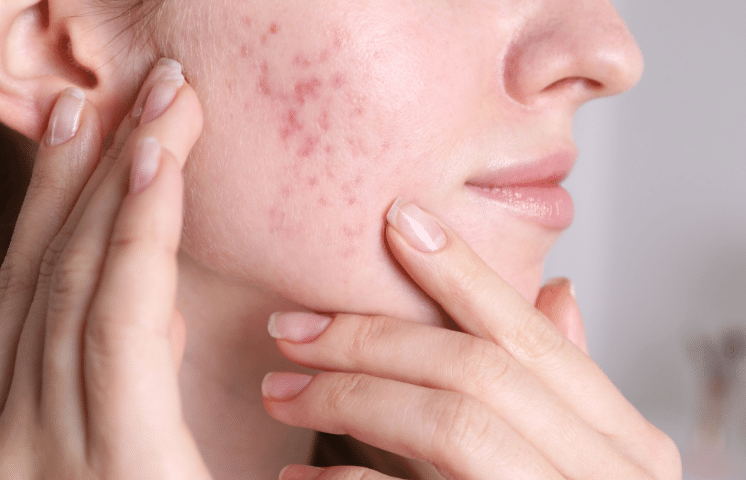Acne scarring can leave a lasting impact on your skin, often long after the blemishes are gone. From mild to severe, acne scars come in different forms, including pitted or discolored marks that can affect your skin’s overall appearance. The good news is that effective treatments exist to restore a smoother, healthier look to your skin. By exploring the right treatments for acne scarring, you can find options that reduce the appearance of scars and rejuvenate your skin.
Here, we’ll dive into treatment methods, from advanced laser therapy to simple at-home remedies.
Why See a Medical Dermatologist for Acne Scarring?
Consulting a medical dermatologist can be an excellent first step for long-lasting results. A medical dermatologist will analyze your skin type and severity of scarring and recommend the most effective treatment options. Unlike over-the-counter products, these professional treatments are designed to address scars with precision, improving your skin’s texture and tone.
Benefits of Consulting a Medical Dermatologist:
- Customized Treatment Plans: Dermatologists offer tailored treatments based on individual skin types and scarring patterns.
- Advanced Procedures: They have access to specialized equipment, like lasers and microneedling devices, that deliver deeper and more effective results.
- Faster Recovery: Professional treatments often result in quicker healing times and lasting improvements.
Top Professional Treatments for Acne Scarring
Finding the right acne scar treatment depends on the type and depth of your scars. Here are some dermatologist-approved options that can help rejuvenate your skin:
Laser Resurfacing
Laser resurfacing is a popular choice for acne scarring because it can reduce deep scars and improve skin texture.
- Benefits: Minimizes the appearance of scars by removing damaged layers of skin.
- Best For: Those with rolling scars or boxcar scars.
- Recovery Time: Typically, 7-10 days with proper aftercare.
Chemical Peels
Chemical peels exfoliate and remove the top layer of skin, promoting new skin growth.
- Benefits: Reduces the appearance of superficial scars and uneven skin tone.
- Best For: Shallow scars and discoloration.
- Frequency: May require multiple sessions for optimal results.
Microneedling
Microneedling uses tiny needles to create micro-injuries, encouraging collagen production.
- Benefits: Helps with both texture and depth of scars, encouraging smoother skin over time.
- Best For: Ice-pick scars and moderate pitted scars.
- Recovery Time: Minimal, but slight redness may last 24-48 hours.
Dermal Fillers
Fillers add volume beneath indented scars, temporarily reducing their appearance.
- Benefits: Instantly plumps the skin, making scars less noticeable.
- Best For: Deep boxcar scars or rolling scars.
- Longevity: Results last several months to a year.
Subcision
Subcision breaks apart the scar tissue beneath the skin, allowing the surface to smooth out.
- Benefits: Long-lasting improvement for deep, tethered scars.
- Best For: Rolling scars and deeper indentations.
- Downtime: Minimal, though mild swelling or bruising can occur.
Home Remedies to Support Acne Scarring Treatments
While professional treatments are often the most effective, you can support your skin’s healing at home with natural remedies. Here are some safe and simple options:
Aloe Vera Gel
Known for its soothing properties, aloe vera can help reduce redness and inflammation associated with scarring.
- How to Use: Apply pure aloe gel to your scars twice a day.
- Benefits: Soothes irritated skin and encourages healing.
Vitamin C Serum
Vitamin C can brighten skin and reduce dark spots, making it helpful for discoloration.
- How to Use: Apply a few drops of vitamin C serum daily.
- Benefits: Brightens skin and fades discoloration over time.
Honey
Honey has natural antibacterial properties that can promote skin healing.
- How to Use: Apply a thin layer of honey to your scars and rinse off after 15-20 minutes.
- Benefits: Hydrates skin and helps reduce scarring.
Sunscreen
Daily sunscreen is essential, as it prevents scars from darkening.
- How to Use: Use a broad-spectrum SPF 30 or higher daily.
- Benefits: Protects skin from UV damage, preventing discoloration.
How to Prevent Future Acne Scarring?
While treating existing acne scarring is essential, prevention is equally important. Here are some tips to minimize future scarring:
- Avoid Picking at Pimples: Picking at acne can worsen scarring by damaging deeper skin layers.
- Use Non-Comedogenic Products: Look for skincare products that won’t clog pores, reducing the chances of future breakouts.
- Follow a Consistent Skincare Routine: Gentle cleansing and moisturizing can help keep acne under control.
- Treat Acne Early: Address acne quickly with the help of a medical dermatologist to reduce the likelihood of scars forming.
Choosing the Right Acne Scarring Treatment for You
With many treatment options available, deciding on the best method for your skin can feel overwhelming. Here’s a quick recap to help you choose:
- Mild to Moderate Scars: Consider chemical peels, microneedling, or at-home remedies.
- Deep or Pitted Scars: Laser resurfacing, subcision, or dermal fillers might be more effective.
- Persistent Discoloration: Vitamin C serums and daily sunscreen can help improve skin tone.
Working with a medical dermatologist can ensure you’re receiving the best treatment for your unique skin type and needs.
Renew Your Skin with the Right Acne Scar Treatment
Reducing acne scarring is possible with the right approach. From in-office treatments like laser therapy and microneedling to at-home remedies like aloe vera and vitamin C, there are effective options for every type of scar. Partnering with a medical dermatologist allows you to explore the most effective treatments tailored to your skin, helping you achieve a smoother, clearer appearance. By taking action, you’re one step closer to restoring confidence and enjoying radiant, healthy skin once again.

